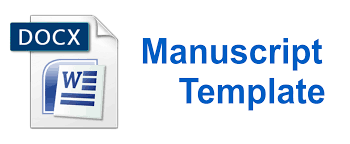Penerapan Metode Role Playing Untuk Meningkatkan Prestasi Belajar Siswa Pada Mata Pelajaran Sejarah Kebudayaan Islam di Kelas XI MAN 2 Langkat
Keywords:
Role-Playing Method, Students' Learning AchievementAbstract
The purpose of this research is to improve students' learning achievement in the subject of Islamic cultural history using the role-playing method in Grade XI at MAN 2 LANGKAT. The research design employed in this study is classroom action research. Data collection techniques include interviews, observations, documentation, and tests conducted over two learning cycles. Data analysis involves data reduction, data presentation, and conclusion drawing/verification. The results indicate a difference in students' learning achievement in Grade XI at MAN 2 LANGKAT before and after the implementation of classroom action research using the role-playing method to enhance students' learning achievement.The completion rate of students in Class XI-A at MAN 2 LANGKAT in the pre-cycle was 42.85%, increased to 71.42% in Cycle I, and further improved to 88.57% in Cycle II. The application of the role-playing strategy was successfully executed through two cycles, as evidenced by increased activities observed in both teachers and students during Cycle I and Cycle II. Teacher observation scores increased from 71.42 in Cycle I to 85.71 (good) in Cycle II. Similarly, student activity observations increased from a score of 63.33 in Cycle I to 86 in Cycle II.The improvement in students' learning achievement using the role-playing method in the Islamic Cultural History subject, specifically in the material of Islamic Civilization in the Abbasid Caliphate era for Grade XI at MAN 2 LANGKAT, is evident in the average scores. The average learning achievement of students in the pre-cycle was 72.28, increased to 79.42 (satisfactory) in Cycle I, and further improved to 84.71 (good) in Cycle II. The percentage of student completion also increased from 42.85% in the pre-cycle to 71.42% (satisfactory) in Cycle I and further improved to 88.57% (good) in Cycle II.
Downloads
References
Arikunto, Suharsimi. (2010). Proses Belajar Mengajar. Bandung: PT. Ramaja Rosdakarya.
Arikunto. (2010). Proses Belajar Mengajar. Bandung: PT. Ramaja Rosdakarya.
Hidayat, Muhammad Arif. (2017). The Methodology Of Educational Research. Medan : Perdana Publishing.
Huda, Miftahul. (2013). Model-model Pengajaran dan Pembelajaran, Yogyakarta: Pustaka Belajar.
Kisyani dan Tatang. (2018). Penelitian Tindakan Kelas. Bandung : PT Remaja Rosdakarya.
Sabri, Ahmad. (2014). Strategi Belajar Mengajar Dan Micro Teaching. Ciputat: Quantum Teaching.
Slameto. (2010). Belajar dan Faktor-Faktor Yang Mempengaruhinya. Jakarta: PT.Rineka Cipta.
Soimin, Aris, (2013). 68 Model Pembelajaran Inovatif, Yogyakarta: Ar-ruzz.
Sudjana, N. (2010). Penilaian Hasil Proses Belajar Mengajar. Bandung: PT. Ramaja Rosdakarya.
Syukur, Fatah. (2011). Sejarah Peradaban Islam, Semarang: PT. Pustaka Rizki Putra.







